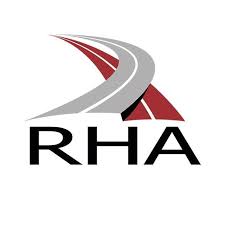Logistics UK
Category: Trade Association
Logistics UK, formerly the Freight Transport Association (FTA) before it was renamed in July 2020, is the “only business group in the UK that represents all of logistics, with members from the road, rail, sea and air industries”, according to its website. Its members also include the “buyers of freight services such as retailers and manufacturers”.
Logistics UK has strongly opposed efforts to introduce charging Clean Air Zones (CAZ) in the most polluted UK cities, arguing that there are better ways to improve air quality and that vehicles are being replaced by cleaner models without the need for charging zones.
It provides a range of services to its members, including training courses, logistics sector news and advice on regulatory requirements.
Over 220,000 lorries, representing more than half of the UK’s fleet, are operated by Logistics UK’s over 18,000 members, according to the organisation.
Sainsbury’s, Asda and the John Lewis Partnership, the parent company of John Lewis and Waitrose, all confirmed they were members to DeSmog. Executives at DHL, Hermes and Maritime Transport sit on the board of Logistics UK.
Other major companies including Tesco, Coca Cola, Royal Mail and Greggs are members of the Logistics Carbon Reduction Scheme, run by Logistics UK, but declined to confirm whether they were currently members of Logistics UK itself when contacted.
The organisation lobbies policymakers “with one voice on behalf of the whole sector, greatly increasing the impact of our messages and achieving amazing results for Members”. It does so “at local, national and European level”.
It runs a number of campaigns. These include successfully lobbying for the government to introduce an “HGV Road User Levy” in 2014 to level the playing field between foreign and UK hauliers, who have to pay road tolls in mainland Europe.
Along with the Road Haulage Association, it is also a “founding backer” and funder of the anti-fuel duty FairFuel UK campaign, which believes the health impacts of air pollution are exaggerated. Logistics UK confirmed it was still a supporter of the group when contacted by DeSmog.
Logistics UK is a member of the Society of Motor Manufacturers and Traders, a trade association which represents more than 800 UK automotive companies.
Logistics UK is a partner of the Centre for Sustainable Road Freight, a collaboration between Cambridge and Heriot-Watt Universities “dedicated to minimising the environmental impact of road freight transport and providing opportunities for decarbonising freight”.
Funding
Logistics UK reported income of £30.5 million in 2018, according to its annual report. £4.4 million of its income came from member subscriptions, with the remainder coming from the sale of goods and services.
Air Pollution Lobbying
Logistics UK says on its website that it is “committed to helping members make their operations greener and more efficient” and that heavy goods vehicles are “vital to reducing emissions as they are the most energy and road space efficient way of moving freight on a per tonne basis”.
Elsewhere, it has said it “accepts that further public policy measures are required if the UK is to meet its legal obligations for nitrogen dioxide levels in the worst polluted spots around the UK”.
When contacted by DeSmog, Logistics UK pointed to its participation in initiatives such as the Low Carbon Vehicle Partnership and Logistics Emissions Reduction Scheme as a demonstration of its commitment to meeting “the need for new product developments in this area”.
However, the organisation has strongly criticised the introduction of charging CAZs across the UK and told DeSmog its members believed they were “not the most effective method to implement change”.
Logistics UK listed one of its 2019 “policy achievements” as delaying the introduction of Clean Air Zones in six UK cities, when it was known as the Freight Transport Association. “Due to FTA lobbying, six city Clean Air Zones (CAZs) or air quality schemes, including London’s Ultra Low Emission Zone (ULEZ), have had their start dates delayed for as long as possible”, it said.
Logistics UK‘s Head of Urban Policy Natalie Chapman argued in a 2019 article that there were “better ways of improving air quality” and that the latest Euro VI vehicles would be adopted anyway “as part of the natural fleet replacement cycle”. “All that a CAZ or LEZ [Low Emission Zone] does is speed this up,” she wrote.
In a briefing for local authorities, Logistics UK claims the benefits of CAZs would be “short-lived” and that the schemes are “not cheap for local authorities to implement”. It argues that “the money could be better invested in measures that will enable those who can to make changes to their fleet or operations”, stating that CAZs are “not necessary to deliver improved air quality”.
It also claims that the “pollution footprint of heavy goods vehicles (HGVs) in cities is set to fall radically in the next few years without any further intervention”.
It argues CAZs are “disruptive to local businesses” and have the “hardest impact on those with the least means to replace vehicles”. The resale value of older Euro 5 has “plummeted” as a result of clean air policies, it says.
Alternatives it proposes include incentivising the uptake of non-diesel and -petrol vehicles, better traffic congestion management and switching freight delivery out of peak times.
For CAZs that it deems unavoidable due to EU targets, it makes a number of recommendations, including that they should be “as small as possible”, that HGV charges should be £50, half the £100 limit, that grants should be offered by central government, and that vans should be excluded because the Euro 6 standard for vans was introduced later than for other vehicle types.
It also says on its website that efforts to improve air quality are “resulting in a patchwork of regulation which is difficult for businesses operating in multiple areas of the country to comply with” and that there is a need for “cohesive policies”.
Freight Industry Coalition
Logistics UK is part of a coalition of trade bodies representing the road transport sector that strongly criticise charging Clean Air Zones and want to see non-charging alternatives implemented instead. Other members include the Road Haulage Association, the British Vehicle Rental & Leasing Association and the National Franchised Dealers Association.
In 2018, the coalition published a plan entitled “The Way Forward” setting out alternative measures to CAZs, such as smarter traffic management. It argued CAZs were unfairly targeting hauliers and met with Transport Minister Jesse Norman and Environment Minister Therese Coffey to discuss the recommendations.
The coalition has also published a factsheet arguing that there are currently no viable alternatives to diesel for HGVs and that small and medium sized businesses would be worst affected by CAZs. It also criticised the charging system for not distinguishing between different types of older diesel lorries.
The factsheet said that lorries were being “asked to bear the greatest burden in reducing emissions”, despite not being the only source of NOx, and that the charges would “result in a tax on freight, a tax on business and higher prices for everyone”.
Diesel Vehicles
Logistics UK has cast doubt on whether the government’s proposed 2035 ban on new petrol, diesel and hybrid cars and vans is achievable, arguing that “urgent action” from the government was needed to “ensure the right infrastructure is in place and the market is ready”.
The policy is based on advice from the independent Committee on Climate Change regarding what is needed to meet the UK’s net zero emissions target by 2050. Scotland, which does not have the powers to implement such a ban, has pledged to “phase out the need” for petrol and diesel cars by 2032.
Logistics UK has also said alternative fuels to diesel are currently “not operationally viable on anything more than a niche basis”, arguing that the industry needs help to bring them to market. It supports natural gas and biomethane as alternatives. Analysis by the Committee on Climate Change in 2016 suggested that emissions reductions from these technologies are “likely to be limited”.
Fuel Duty
In addition to being a “founding backer” of the anti-fuel duty FairFuel UK campaign, Logistics UK has previously called on the Treasury to cut fuel duty on diesel, describing it as the “unseen and unnecessary brake on the UK economy”.
It cited “independent research” by the Centre for Economics and Business Research and the National Institute of Economic and Social Research, without mentioning that the reports were commissioned by FairFuel UK and the Road Haulage Association, respectively. The CEBR’s founder and deputy chairman Douglas McWilliams congratulated FairFuel in March 2020 on keeping fuel duty frozen.
It has claimed that increasing fuel duty would “have no environmental benefits as far as logistics is concerned” because the “same quantity of goods would have to be moved” and there is no “mass alternative” to diesel. It urges the government to “further decrease taxes on alternative fuels” to make them more commercially viable.
Logistics UK has also opposed moves to end the lower rate of fuel duty for “red diesel”, a more polluting form of fuel used principally in the construction and agriculture sectors, listing the government’s decision not to increase the rate in 2019 as one of its “policy achievements”.
Following the government’s decision in March 2020 to increase the duty on red diesel, Logistics UK claimed it would “not incentivise companies to transition to newer, cleaner diesel units, because they are no more fuel efficient” and that it would lead to companies “keeping their current equipment longer”.
Key Arguments in Order of Prominence
- HGV pollution has fallen significantly already and will continue to fall without the need for CAZs
- The latest, cleanest Euro VI models are being adopted as part of natural fleet replacements
- CAZs are unnecessary – there are better ways of improving air quality than punitive charging schemes
- Penalising diesel vehicles is counter-productive because operators hold onto older vehicles for longer
- The introduction of CAZs is being rushed, leaving insufficient time for businesses to adapt
- Vans should be excluded because there aren’t enough compliant second-hand vans on the market
- CAZs don’t provide enough flexibility for businesses that will struggle to comply
- Clean Air Zones are unfairly targeting hauliers
- CAZs would be expensive for local authorities to implement
- If CAZs are implemented, they should be as small as possible and come into effect as late as possible
- CAZs are disruptive to local businesses, tantamount to a “stealth tax”
Areas Active
Logistics UK has objected to plans for Clean Air Zones in numerous cities and asked for delays in most cases. It has also encouraged its members to respond to public consultations on the schemes.
Bath: in a statement responding to the council’s decision to introduce a charging CAZ, Logistics UK said it was the “worst option for businesses in Bath and the regional economy”. It described the scheme as “tantamount to a stealth tax on the hard-working local businesses and vehicle operators”.
Birmingham: Logistics UK listed the council’s decision to “allow one-year exemptions for many commercial vehicles” in its proposed CAZ as one of its 2019 “policy achievements”. It also listed Birmingham’s decision to halve the daily charge for non-compliant HGVs, coaches and buses to £50, to postpone the start date till January 2020, and to grant a “sunset clause” for “up to two vehicles per operator based within the city”, temporarily exempting them from charges.
In March 2020, it welcomed news that the city had asked the government to have its CAZ postponed due to the coronavirus pandemic, saying the move would “allow businesses operating within the logistics sector to focus their efforts on ensuring the public, supermarkets and other retailers all receive the essential items”. It urged “other cities with impending clean air schemes to follow suit”.
Cardiff: Logistics UK listed the council’s decision not to introduce a CAZ, “consistent with FTA’s campaigning”, as one of its 2019 “policy achievements”.
Coventry: Logistics UK’s Policy Manager Chris Yarsley celebrated the government’s decision to accept the city’s alternatives to a charging CAZ, saying it “would have damaged the local economy while failing to deliver long-term improvements to the city’s air quality”. He said Logistics UK had “worked closely with officials from Coventry City Council to ensure the concerns of our members were heard during their decision-making process; we are pleased they have taken our advice on board”.
Derby: Logistics UK listed the council’s decision not to introduce a CAZ and “instead work on achieving compliance with air quality standards through other measures” among its 2019 “policy achievements”.
Greater Manchester: Logistics UK listed the council’s decision to exclude vans from the city’s proposed CAZ until 2023 as one of its 2019 “policy achievements”.
Leeds: Logistics UK listed the council’s decision to offer a “sunset clause” for some vehicles and a grant of up to £16,000 for non-compliant vehicles operating in the zone among its 2019 “policy achievements”. It also noted: “In line with FTA recommendation, Leeds City Council has reduced the size of its originally proposed Clean Air Zone (CAZ), delayed the start date, and made vans exempt from charges.” It encouraged its members to respond to the city’s public consultation.
In March 2020, it welcomed news that the city had asked the government to have its CAZ postponed due to the coronavirus pandemic, saying the move would “allow businesses operating within the logistics sector to focus their efforts on ensuring the public, supermarkets and other retailers all receive the essential items”. It urged “other cities with impending clean air schemes to follow suit”.
London: in its response to a consultation on the Ultra-Low Emission Zone, Logistics UK called for the introduction to be delayed to allow operators more time to comply. It also argued that it was counter-productive, with uncertainty over the scheme causing businesses to hold onto older vehicles.
It listed the City of London’s decision to postpone the introduction of a Low Emission Street as one of its “policy achievements” in 2019.
It also welcomed the suspension of the London congestion charge and ULEZ during the 2020 coronavirus pandemic, arguing the move would “keep the supply chain stable and robust and ensure that London can remain open for business”.
Newcastle: Logistics UK has argued that plans for a CAZ in the city will “hurt local businesses”, claiming that CAZs “do not provide any lasting benefit to air quality”.
Oxford: Logistics UK listed the council’s decision to revise the hours of operation of the city’s proposed zero emission zone from 24/7 to 10am-6pm as one of its 2019 “policy achievements”.
In January 2020, it called on the city and county councils to “reconsider their plans” for a ZEZ, calling it a “punitive scheme”, arguing that there are “no zero-emission trucks on the market, and very limited options for vans”.
In March 2020, it welcomed news that the ZEZ would be postponed due to the coronavirus pandemic, saying the move would “allow businesses operating within the logistics sector to focus their efforts on ensuring the public, supermarkets and other retailers all receive the essential items”. It urged “other cities with impending clean air schemes to follow suit”.
Scotland: Logistics UK listed “Substantial changes to the Cleaner Air for Scotland Transport Working Group final report” as one of its 2019 “policy achievements”.
Southampton: Logistics UK listed the city council’s decision to reject a charging Clean Air Zone in favour of “other, non-chargeable methods” as one of its 2019 “policy achievements”.
Related Organisations
- Road Haulage Association
- British Vehicle Rental & Leasing Association
- National Franchised Dealers Association
- FairFuel
Social Media
- @LogisticsUKNews on Twitter.
- @LogisticsUK on Facebook.






